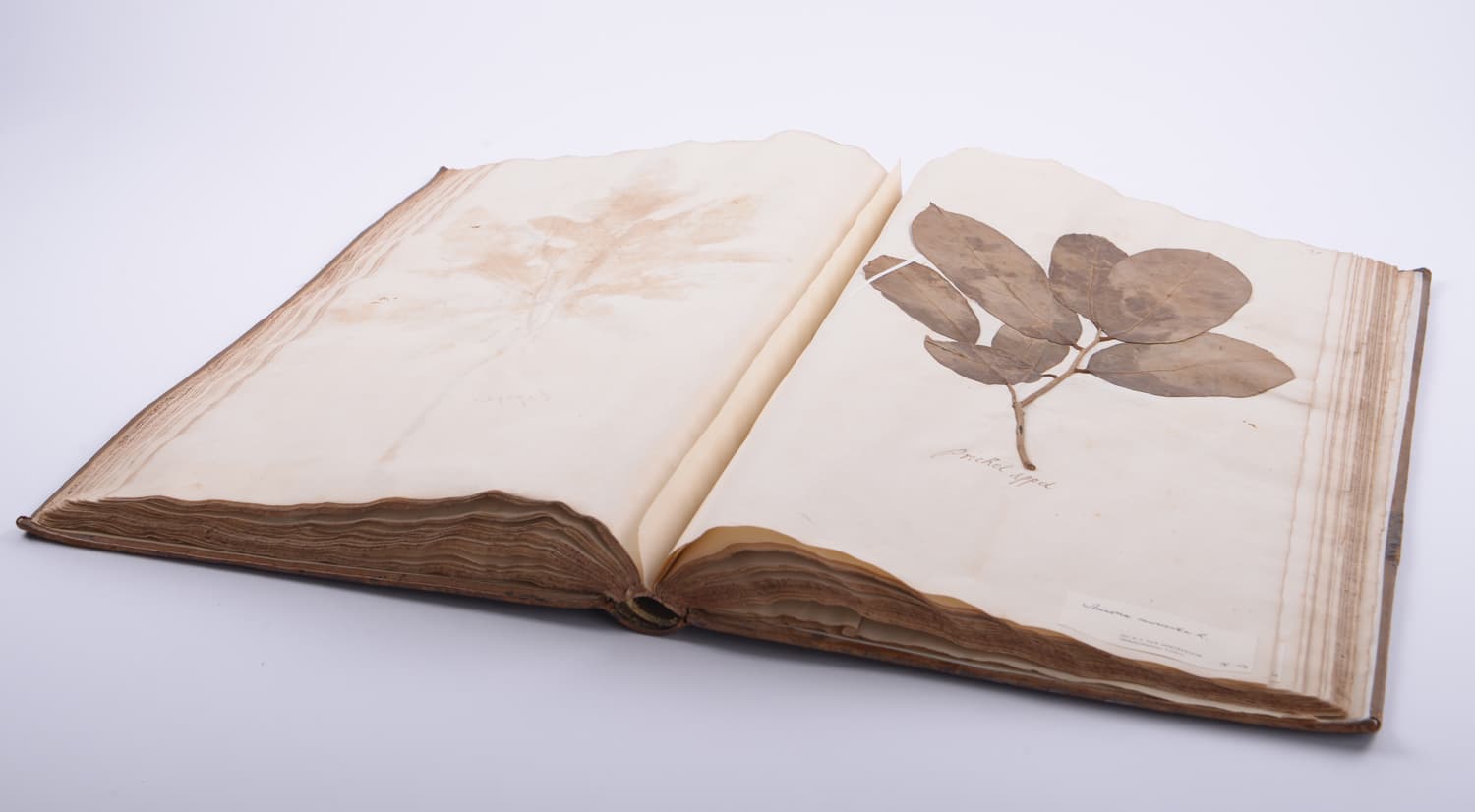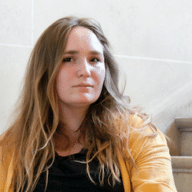Emma Wiersma: OKRA / mother of vinegar
Eighteen young Flemish and Dutch authors bring an artefact to life from the Slavery exhibition at the Rijksmuseum in Amsterdam. Emma Wiersma wrote a poem referencing the Hermann Herbarium from 1687, the oldest existing collection of plants from Suriname. Some of the plants originate in Africa, as slave traders would buy food provisions in West Africa for the voyage to Suriname.
 Paul Hermann, Hermann Herbarium, ca. 1687
Paul Hermann, Hermann Herbarium, ca. 1687© Naturalis Biodiversity Center, Leiden
OKRA/ mother of vinegar
fol.17 Aribanari | The flower of this tree mimics the scent of a rose, the fruits resemble medlars.
fol. 7 Moraria | The plant has runners, flowers reminiscent of chamomile and fruits resembling strawberries, sweet and not unpleasant tasting.
fol. 21 Swampu Pakuli | The wood of this tree is red, hard and heavy. The gummy fruits look like plums, are edible and have yellow wax crowns. The bark secretes a sticky, sweetish fluid.
Out of folio one I took a seed. I put it into the soil and 60 days later green furrowed fingers shot up.
The fingers grew into hands and I watched as she carefully soaked the seeds in water, covered them with soil, waited impatiently and sang, albeit silently.
fol. 11 Marmadas | The tree bears no flowers, only fruits that look like hairy nuts and contain a soft, sweet pulp reminiscent of marmalade.
In her captivity she saw mangroves, the salt between their roots, their proud reflection colouring the water as they grew whichever way they wanted to grow.
fol. 37 Snekiwiwiri | Has sweet sap and a heavy scent. Is used in cases of hysteria.
She had screamed, she had had enough, she had collapsed to the ground and decided: she will dodge the blows.
fol. 14 Sibi Wiri | Used to treat constipation.
She had picked up the seeds (round like eggs and smelling of musk), concealed them among hair, had snuck out and run off.
fol. 4 Barklak | The fruits are suggestive of lidded jars. The bark of this tree is sought after for rope, while the wood is used for construction, as it’s hard as iron and resistant to nails.
She had made rope from mature plants, moved rocks, built a village. She had sheltered her escaped daughters and nursed their injuries as best as she could.
fol. 26 Abongra | Carries white flowers. The pressed seeds produce a sweet, pain-killing oil.
She picked the young fruits, their cross-sections revealing stars, she cut and added oil and vinegar.
‘We are no curiosities,’ her fingers whispered.
‘I don’t mimic roses, I help the sick, I keep the sand together when you run.’
‘And yes, we become wood and rope, but we also ease pain and we are full-grown and we will help and chew us and chew us.’
Primeval mother stirs the pan
And she decides which way to stir
When to flex to ease the cramp
How she sings, who she feeds
She decides how many helpings she has.
fol. 32 (–) | This plant has no name. A corrosive fluid which is extremely harmful to the face and eyes leaks from the damaged trunk and branches.
From folio four the Barklak looks on in silence and in shame. His bark became rope, the rope lifted sails, he bound her hands, did not speak up, watched as was she whipped.
And one by one, each folio preserves the plants,
safely exhibits them,
away from their long roots, far across the sea.
See also: mother nature
This text was written during a residency at Flemish-Dutch cultural organisation Huis deBuren in association with the Biermans-Lapôtre Foundation.












